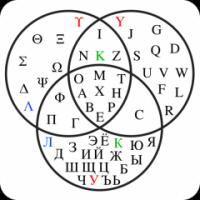Sporočila: 43
Jezik: English
sudanglo (Prikaži profil) 25. januar 2013 12:15:02
Li diris ke KIU inventis la turbinon?I'm not challenging this solution Erinja. But I do make the point that if you search the Tekstaro for examples of such usage you can't find any hits that are questions. The hits are all of the form whosoever or whichsoever.
You can try it yourself with \w+(as|is|os),* ke,* kiu (,* allows for no comma, \w means any stem, (as|is|os) means either as or is or os)
tommjames (Prikaži profil) 25. januar 2013 12:44:14
sudanglo:This reminds me of the issue of 'We shall have to have the carpet cleaned' which is uncomfortable in Esperanto because of the seeming necessity of doubling up 'ig'.But, as we discussed, there are other ways to translate the "have done" meaning of -ig, if you don't want to double up on that suffix. To my mind "Ni devus aranĝi purigon de la tapiŝo" isn't particularly uncomfortable. Also, in the case of pur' in some contexts you might be able to use lav' instead. So you could use "lavigi". Not sure whether that's appropriate for a carpet cleaning but it could be for other items.
BTW getting back on topic, "Ĉu li diris kiu venas?" seems to me like a good workaround but it might sound odd if your alparolato knows that you're perfectly aware of whether he said who's coming. In such a case you may be more likely to ellicit a somewhat perplexed "kompreneble, ĉu vi tiom rapide forgesas?" rather than the intended "jes, li diris ke [nomo] venos." You can't always assume that the question's subtext will be clear to the other speaker.
tommjames (Prikaži profil) 25. januar 2013 13:02:29
sudanglo:To be honest I don't think it's all that significant that Tekstaro doesn't have hits for that structure. That type of question is already relatively uncommon, and as we have seen in this thread there are various other ways you can structure a question to get the response you desire.Li diris ke KIU inventis la turbinon?I'm not challenging this solution Erinja. But I do make the point that if you search the Tekstaro for examples of such usage you can't find any hits that are questions.
BTW it's a minuscule point but your regex would ideally have a ? instead of * after the comma, since a comma would only appear once rather than several times consecutively.
sudanglo (Prikaži profil) 26. januar 2013 11:16:48
That type of question is already relatively uncommonUncommon in which language?
I think the reason why it is not possible to determine from the Tekstaro Esperanto's preferred solution is that both original authors and translators have not been quite sure how to handle this type of question in Esperanto and have side-stepped the issue - much in the way that Erinja has suggested one might do.
The problem is wider than with Kiu questions.
You have the same issue with Kiel questions such as 'How do you suggest we do it?' Again the Tekstaro gives no support for X-as ke kiel? nor X-as kiel? - creating doubt about 'Vi sugestas, ke kiel ni faru?' and 'Vi sugestas, ke ni faru kiel?
With Kion, there doesn't seem to be a problem. Thus 'What does he want us to do?' is comfortably rendered as 'Kion li volas, ke ni faru?' As PMEG points out we seem happy to leave undecided as to whether the Kion belongs to 'fari' or volas'
tommjames (Prikaži profil) 26. januar 2013 12:13:00
sudanglo:I think the reason why it is not possible to determine from the Tekstaro Esperanto's preferred solution is that both original authors and translators have not been quite sure how to handle this type of question in EsperantoI think it's more likely that the need to handle it didn't arise in any of the works there. "Who did he say is coming?" strikes me as something you'd be much more likely to encounter when speaking with someone face to face, than something that you'd find in written works where reports on speech or questions only accounts for a small portion of the total text.
In any case it's not like there has to be some single "way of saying this type of phrase". As I noted in a previous post the ideal translation will likely vary by context, and several acceptable solutions have been mentioned in this thread. Perhaps you just haven't been searching in the right way.
Breto (Prikaži profil) 26. januar 2013 15:30:34
What if, instead of "Who did he say is coming?", we tried something like "Who is it, that he said, was the one coming?" That is a terrible English sentence to my eyes, but English assumes a lot where Esperanto seems to prefer to spell it out explicitly.
Kiun li diris, ke tiu venos?
The above may not be as wordy as my distorted English example, but it looks like it covers the necessary bases to me. "Tiu" points back to "kiun", and everything that needs an object seems to have one.
Edit: The more I think about the above suggestion, the less certain I am that the "ke" should be there. Can someone tell me whether that looks grammatically correct or not?
erinja (Prikaži profil) 26. januar 2013 23:46:30
You were correct in noting that "that" is frequently left out in English. This is most emphatically NOT the case in Esperanto - if you need "ke", you need it, you can't leave it out.
So in English, "I said that I'll come" and "I said I'll come" are both correct colloquial English. In Esperanto, only "Mi diris ke mi venos" is correct; you couldn't say *"Mi diris mi venos"
matrix (Prikaži profil) 27. januar 2013 03:35:28
In French, this sentence may be translated by “Qui a-t-il dit qui venait ?”.
It is a common turn of phrase in this language which is also quite clear in Esperanto thanks to the correlative kiu·n (qui in French ‒ even though there is no accusative in French).
scorpjke (Prikaži profil) 27. januar 2013 07:45:44
sudanglo:This reminds me of the issue of 'We shall have to have the carpet cleaned' which is uncomfortable in Esperanto because of the seeming necessity of doubling up 'ig'. Yet is there a European language which is incapable of expressing this idea?Yes, there is. In Russian instead of the structure "A had something done" we say something that is very similar to "(they) did something (for A)". So if you were to translate "We shall have to have the carpet cleaned" into Russian you would have to rephrase it to something like "we shall have to clean the carpet" or "we shall have to ask them to clean the carpet".
sudanglo (Prikaži profil) 27. januar 2013 11:44:21
An issue that has not yet been fully discussed is the problem of the emphasis shift when one puts 'kiu' in an unusual position for a question.
To my ear 'Li diris ke, kiu venos?' and 'Li diris, ke venos kiu?', whilst grammatically impeccable if you allow questions to be posed in statement form, both seem to be appropriate when one is surprised about who might be coming. The neutral form ought to start off with the kiu in the customary position for a question.
In the forthcoming Esperanto Congress in Ramsgate (in May) we will be having a session 'Ask an Akademiano' in which a panel of experts (some of whom will be Akademianoj) will field questions on the language. I'll be certainly be putting to them this problem of how to translate this type of question, which is almost bound to crop up in any detective novel or 'policier'
As you point out, it is not just a common form in English.
The plethora of different suggestions, and the criticisms of PMEG's suggestion (Pri kiu li diris..) makes it clear, I think, that the language has not yet crystallized out a stable form.





